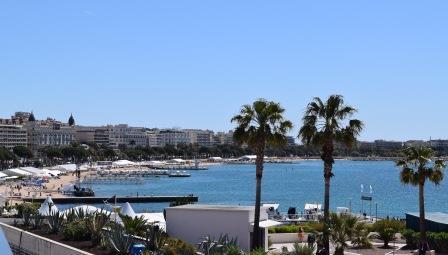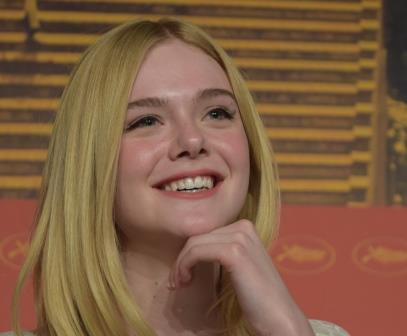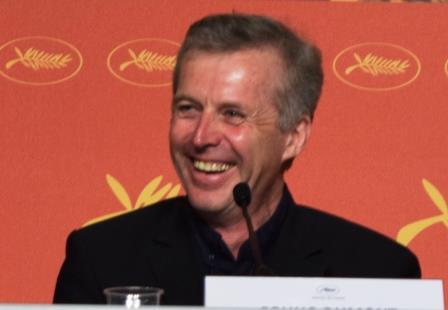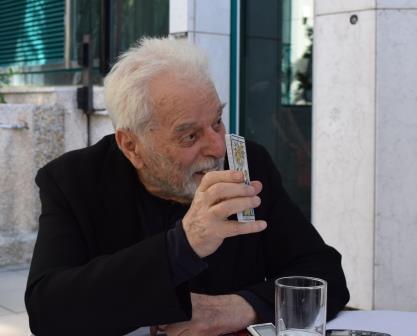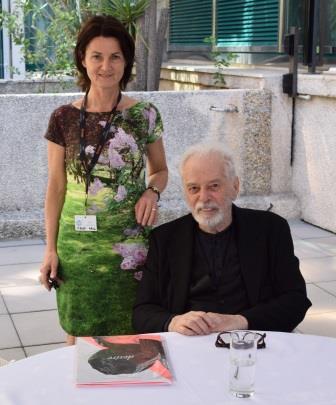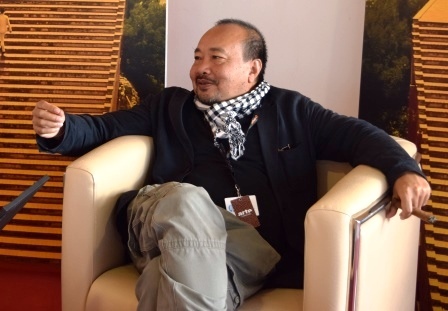The food at Cannes was disappointing this year. It's usually one of the highlights: the fresh Mediterranean salads and gala grilled fish, a reprieve from the humdrum fare in Paris. Yet this year I happened into a restaurant where the fish seemed left over from last year's fest. A nicoise salad----an exquisite specialty in Cannes---came with cold iceberg lettuce. And every time I went to one of the parties, I seemed to arrive just when the chefs were packing up the lobster, so I'd be left with a toothpick.
In contrast, the films this year were excellent! I enjoyed the two Romanian grim films, Graduation and Serianevada, for their serious intensity; the prize-winning Toni Erdmann for its zany creative humor; the Brazilian film Aquarius for its luminous spotlight on actress Sonia Braga in sunny splendid Recife; Jarmusch's Paterson for its deadpan serenity; Farhadi's The Salesman for its theatrical moral conflict; Verhoeven's Elle for its cold perversity; and Almodovar's Julieta for its warm wisdom. I even relished a film few critics did: Nicolas Refn Winding's The Neon Demon, a sublime virtuouso achievement of eerie image and engineered sound, with beauteous model Elle Fanning in haute couture for our gazing pleasure.
The only film that disappointed me was the one that won the Grand Prix: Xavier Dolan's histrionic dejeune adaptation of a Jean-Luc Lagarce play.
What was exciting at this year's festival was the greater preponderance of humorous and entertaining films, as if some drug had entered the cinematic waters. Even Bruno Dumont, notoriously serious, known for his ominous Tarkovsky-like shots on wavering grass in the dunes, with a brutal inexplicable murder to follow, had become light and joyous. His new film Slacker Bay, taking place in the French dunes with cannibals, was a slapstick frolic with aristocrats in frilly shirts, poor urchins in rags and police investigators with big bowler hats, many of whom had a tendency to fall down, plop in the middle of the scene. The film is so light that at one point one of the characters flies off with her billowing skirt into the sky.
Indeed, a rare sight, I caught Bruno Dumont laughing in the press conference!
One of the darkest films in subject--rape and family dysfunction-- Paul Verhoeven's Elle, made me laugh out loud every moment. Another film, Alain Guiraudie's somewhat half-baked Rester Vertical-- featuring a wandering would-be screenwriter with offbeat sexual adventures in French countryside--put me in a good mood.
It was also great to hear the buzz about feminist issues throughout the festival, from the journalists expressing wonder about the exceptional amount of films this year with strong female leads, to Jodie Foster speaking out on behalf of film industry women at the Kering Women in Motion talks.
And seeing Iggy Pop--in the documentary by Jim Jarmusch--cannot but raise one's spirits and inspire an energetic catapult.
In the Director''s Fortnight, even Alejandro Jodorowsky, famed for his dark surrealistic extravaganzas, had a gentler more cheerful offering this year: a nostalgic journey through the director's youth, celebrating his poetic path with colorful scenes and colorful characters, including a wild poet with witch-red hair. The scattering of scenes in Endless Poetry (seemingly haphazard) leads to a pointed finish: a miraculous long-in-coming imagined reconciliation with the director's abusive father, whom Jodorowsky had left behind at age twenty-four and never seen again.
The film ends with a warm hug.
"I want to go with sublime feelings," Jodorowsky told me with a vibrant laugh. "I do not want the ugly. The world is not ugly. The ugliness is inside us. The world is marvelous! It is fantastic. It is spinning!"
He lifted a glass of water, his eyes shining like a child's. "This glass can have either an elixir or a poison!"
Of particular interest to me, in this strong and exceptionally cheerful festival, was Rithy Panh's new film, Exile. Panh, whose career has focused on making films on the genocide in Cambodia, which he and his family suffered, came to Cannes with his latest personal film about the Khmer Rouge experience.
It too had an undercurrent of joy: the joy of vanquishing suffering through art. The film is a collage of artifacts from Panh's past and memories: suitcases, guitars, bikes, typewriters, pots, arranged in a sublime composition. Water drips in a cistern. White flowers blossom on heaps of graves. A nest miraculously fills with eggs. Huge rocks (the symbol of oppression) fly light into the sky.
"Beauty. I will always love it," says the narrator.
The title "Exile", I learned from the director, refers to the fact that one must "exile" oneself into one's own imagination in order to bear up with and overcome the darkness of the planet.
"To survive inside, one must exile oneself from reality," the director smiled. "One cannot live without the imagination! It is important to fly."
Panh waved his hands with whimsy: "Fly, fly..."

